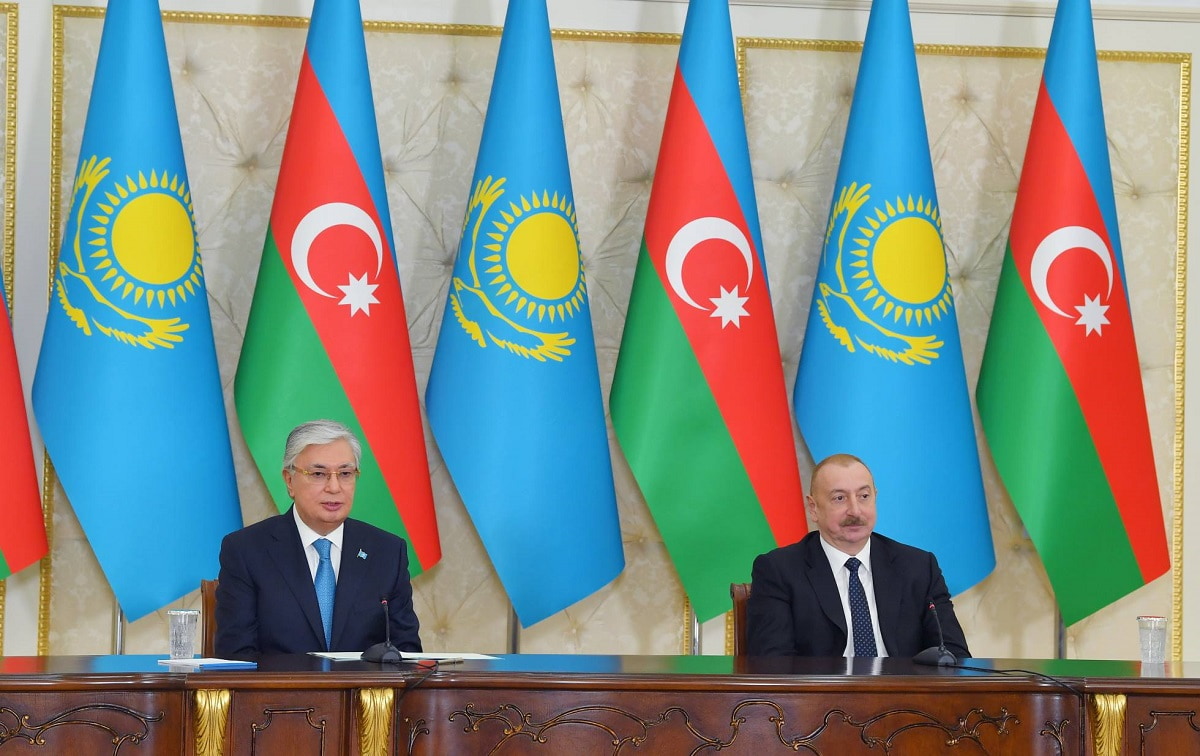For decades, Russia, China, and the West have been vying for influence in Central Asia. But in spite of their ambitions to bolster their presence in this strategically important region, Kazakhstan, Uzbekistan, Kyrgyzstan, Tajikistan, and Turkmenistan are focused on enhancing regional ties to their own advantage.
Russia – once a major actor in Central Asia – has somewhat lost its foothold in the region as a result of the war in Ukraine. China, Türkiye, and the European Union now seek to strengthen their positions in Central Asia. Energy resources are of great importance to each, given that the region holds around 20% of the world’s uranium reserves, 17.2% of oil, and 7% of natural gas.
Regional leaders have signed a series of documents that should help their countries develop joint economic and energy projects.
Aware of this endowment, regional leaders – especially those of energy-rich countries – aim to position their nations as important players in the adjustment of the international political and economic structure. Regional leaders have signed a series of documents that should help their countries develop joint economic and energy projects – from the implementation of the green agenda, to the further development of the Trans-Caspian International Transport Route, also called the Middle Corridor. In August, the presidents of Kazakhstan, Uzbekistan, Kyrgyzstan, Tajikistan, and Turkmenistan gathered in Astana for regular talks.
Kazakhstan, as the host of the event, has already launched a number of initiatives to promote regional integration and connectivity. In December 2022, Kazakh President Kassym-Jomart Tokayev and his Uzbek counterpart Shavkat Mirziyoyev signed a partnership agreement, while Astana is already in nominally allied relations with other Central Asian countries (excluding permanently neutral Turkmenistan) through the Collective Security Treaty Organisation (CSTO).
"The creation of a regional security architecture is becoming especially urgent, including through the development of a catalog of security risks for Central Asia and measures to prevent them," Tokayev stressed.

Kazakh authorities have already created the Central Asia 2040 strategy for the development of regional cooperation, the adoption of which could have conceptual significance for the region. In line with its pragmatic foreign policy, Astana actively promotes cooperation, dialogue, and prosperity among all sides, rather than competition.
As Tokayev repeatedly stated, Kazakhstan seeks to replace the “Great Game” – a rivalry between the 19th-century British and Russian empires over influence in Central Asia – with “Great Gain for all in the heart of Eurasia”. Astana’s efforts in this area have the potential to position it as a regional leader.
According to Kazakhstan’s Deputy Foreign Minister Roman Vassilenko, in a recent meeting between his boss Murat Nurtleu and the EU High Representative for Foreign Affairs and Security Policy Josep Borrell, the European officials said that “Kazakhstan used to be in the middle of nowhere, and now it is in the middle of everywhere”. The summit in Astana has yet again shown that Kazakhstan continues to emerge as a middle power.
The participation of Azerbaijan’s President Ilham Aliyev in the summit, along with the scheduled meeting of Japan’s Prime Minister Fumio Kishida with Central Asian leaders (although his trip to Astana was postponed due to an earthquake warning, and now will depend on his successor), clearly demonstrates both countries’ ambitions to develop closer ties with Central Asia. While Tokyo reportedly seeks to counterbalance the growing influence of China in the region, and also to find new markets for its economy, Baku’s interests in Central Asia remain mostly energy-related.
As the European Union aims to end – or at least significantly reduce – its dependence on Russian energy, it views Central Asia as an important producer not only of fossil fuels, but also of “green electricity”.
As the European Union aims to end – or at least significantly reduce – its dependence on Russian energy, it views Central Asia as an important producer not only of fossil fuels, but also of “green electricity”. Azerbaijan, Kazakhstan, and Uzbekistan have recently agreed to establish a joint venture to export green energy to Europe. But it is a long-term process. In the meantime, the three nations will have to develop their own green energy sector, and to lay the undersea cable from the Caspian to the Black Sea, and then further down to Europe.
As Tokayev pointed out, construction of the Kambarata-1 Hydroelectric Power Station in Kyrgyzstan and the Rogun Hydroelectric Power Station in Tajikistan could become the region’s “energy projects of the century”. However, even though energy is expected to remain the major driver of Central Asian nations’ foreign policy, maintaining peace and stability in the region amid geopolitical uncertainty will likely be their top priority in the coming months and years.
Yet that does not mean Kazakhstan, or Moscow’s other Central Asian CSTO partners, will leave the Russian-dominated organisation anytime soon. Even though Ukraine’s recent incursion into Russia’s Kursk region shows that the CSTO exists merely on paper, and that none of its members are willing to get involved and protect their nominal ally Russia, for the time being Central Asian states will likely continue to take a pragmatic approach and seek to preserve good ties with Moscow.
The fact that Central Asian leaders spoke in Russian during the summit in Astana, and that all official signs at the conference were in both Kazakh and Russian, shows that a potential departure from Moscow’s geopolitical orbit will be a long and very slow process.

